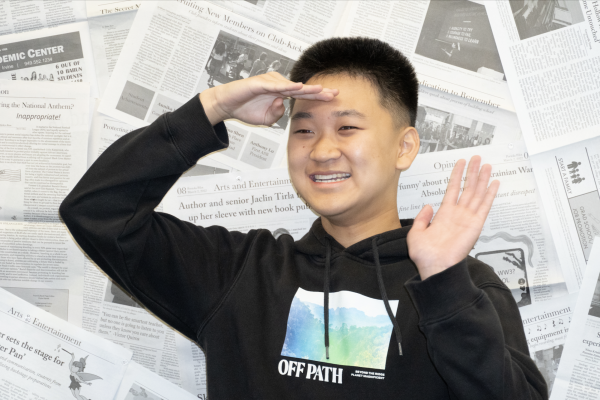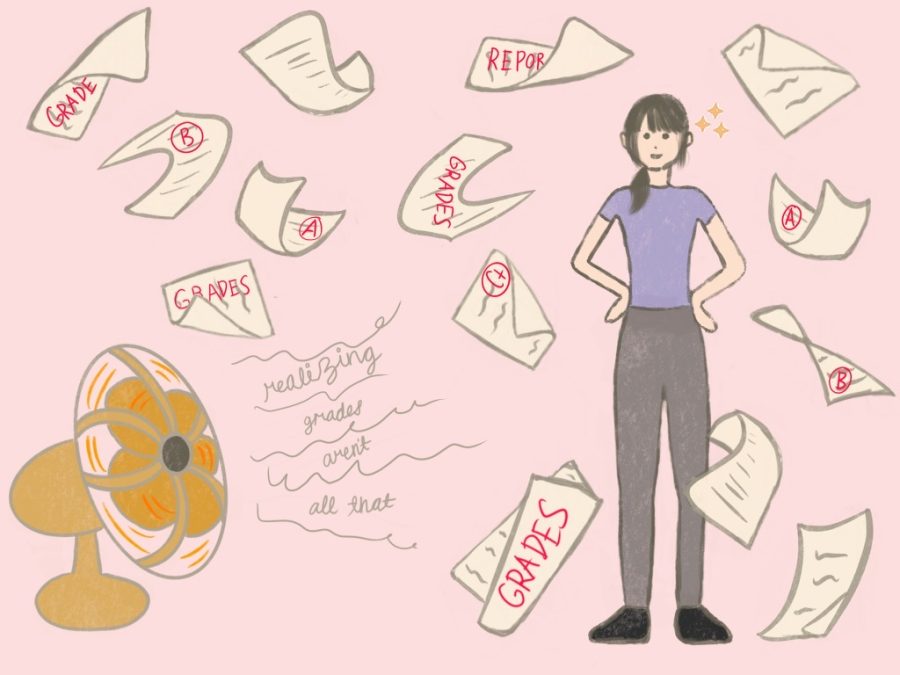Stopping the Cycle of Burnout Requires Objective Thinking
Identifying burnout is the first step to stopping it. Lacking the energy to be consistently productive, becoming cynical or critical around peers and lack of satisfaction from accomplishments are common symptoms of burnout, according to the Mayo Clinic. Students who hold themselves to high standards are at even higher risk of burnout, even when academics may not be in play.
“Yeah, I pulled an all-nighter for that math test.”
“Wow, you’re such a hard worker!”
Every day around campus, these conversations perpetuate the cycle of student burnout.
“Grades are a very prevalent part of Portola,” junior Amogh Baddam said. “Irvine’s culture is so competitive in comparison to some other places. I’d say 50% of my conversations with friends are about grades.”
While Irvine is uniquely competitive, associating academic achievement with self-esteem is not. Nearly 80% of students in America base their self-worth on academic success, according to a study from the University of Michigan’s Institute for Social Research.
In order to avoid burnout and feel more confident about their self-worth, it is imperative that students realize the lack of correlation between grades and future levels of “success,” for success is not tied to high school performance. Equally important, students should recognize what exactly constitutes above average within the American public school system.
It is essential to understand that Portola High is nowhere near average in terms of academic achievement, and that comparing oneself to top-performers within the nation is in no way a reasonable expectation. For reference, Portola High is ranked tenth in the country in terms of public school students accepted to UC Berkeley during the 2021-22 admissions cycle, according to the University of California website.
Students must also recognize the value they bring to society as humans, instead of solely basing it on their level of academic success. There is only one of each individual, and as such, see the worth one brings as completely unique to themselves. A person is better defined by the original ideas, personalities and tastes they offer to others’ lives, as opposed to a mere letter on their transcript.
While many of those experiencing burnout may argue that the definition of accomplishment is dependent on external validation, setting a personal long-term goal shows the capability to challenge oneself by setting personally attainable standards. Finding success in these goals is more important to self-satisfaction than relying on another person’s definition of success, according to the Center for Communication.
While more cynical students can argue that there is a correlation between grades and career success, Nobel Prize-winning economist James Heckman found that personality, not high school achievement, was the most accurate predictor of success. This means staying proactive beyond high school, strong in the face of adversity and, most essentially, maintaining strong mental health.
One way to practice strong mental health is by keeping a healthy balance between schoolwork and more enjoyable activities.
“I’m in yearbook, and yearbook has a large amount of work that you have to finish within like about a month’s period,” sophomore Vy Tran said. “But I work as a veterinary intern, which helps me relieve stress because I can interact with many people. It’s an environment where I can genuinely learn at my own pace without pressure, and because I can learn without any real pressure, I think I just learn more, honestly.”
At its core, the first step to avoiding burnout is understanding the misconception with correlating self-worth and grades. Only then will students be able to stay resilient and understand that failure should not be treated as a barricade to one’s goals, but rather, a learning experience.
Your donation will support the student journalists of Portola High School. Your contribution will allow us to purchase equipment and cover our annual website hosting costs.

Michael Sun is the assistant Arts and Entertainment Editor and also a part of the business team for his second and final year in Pilot. He likes good Asian...

Claire Chan is the front page editor and news photo editor for her second and final year on the Portola Pilot. She is looking forward to making the best...




